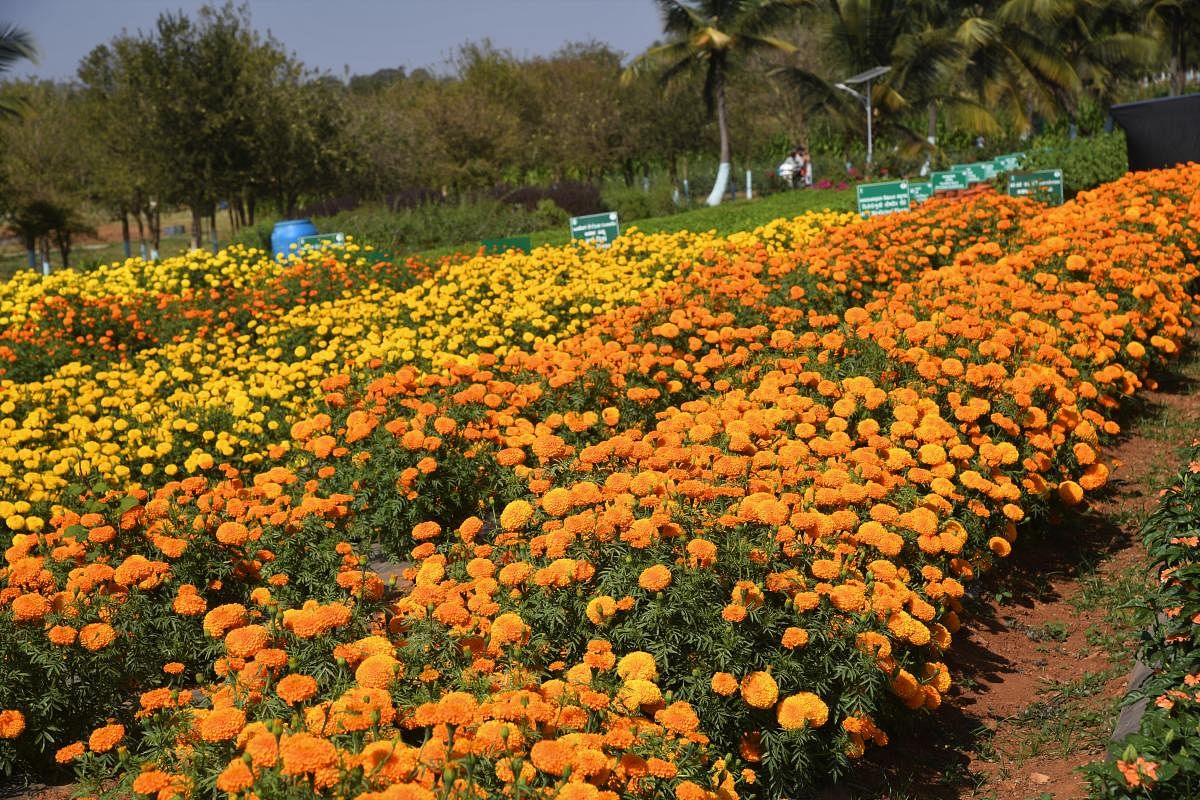Scientists show flower power with desi varieties




Scientists from Bengaluru-based Indian Institute of Horticultural Research (IIHR) have come out with desi flower varieties of marigold and gerbera, in the process breaking the vice-like grip of the Chinese and Dutch who virtually controlled the trade.
Farmers till now had to pay royalties to these countries for sourcing seeds and plant materials of these flowers, which burnt a big hole in their pockets. But scientists have now successfully introduced different varieties of these flowers which are on par with global standards and expected to revolutionise the Indian floriculture industry.
While Arka Red and Arka Krishika are the desi gerbera varieties, Arka Vibha and Arka Shubha are F1 hybrid marigold varieties.
“All these years we had only open-pollinated varieties of marigold whose yield was very less,” said Dr C Ashwath, principal scientist and head of the flowers and medicinal crops division, IIHR.
“Hence farmers had to pay Chinese companies hefty royalties to purchase seeds and plant materials. Similarly, we have 30 to 40 gerbera varieties and all of them are imported from the Netherlands.”
Ashwath said earlier a “single marigold plant was sold at Rs 25 to Rs 30, but now it is available at less than Rs 5”. “Similarly, for gerbera, farmers were spending Rs 40 to Rs 50 per plant. Now, it will be available at Rs 15 per plant,” he added.
While the gerberas are largely used for decoration purpose, marigold is used both for domestic as well as extraction of colour and essence.
“Our new varieties are on par with the global varieties. The marigold varieties are also rich in lutein content which can be extracted from petals. It is used in the meat industry and poultry industry. Farmers can get 15 tonnes of marigold per acre with the new varieties,” he said.
Bengaluru and Mysuru suburbs are identified as the flower hubs, with more and more small farmers cultivating the flowers to supply it for cities.
“Normally, each plant of gerbera produces 40 flowers. In a quarter acre, as many as 6,000 plus plants can be planted. With 2.6 lakh flowers, sold at a relatively cheap price of Rs 2 per flower, the farmer will get about Rs 5 lakh,” Ashwath said.
As of now, 3.25 lakh hectares of land is under flower cultivation and both marigold and gerbera contribute about 20 to 25 per cent.
